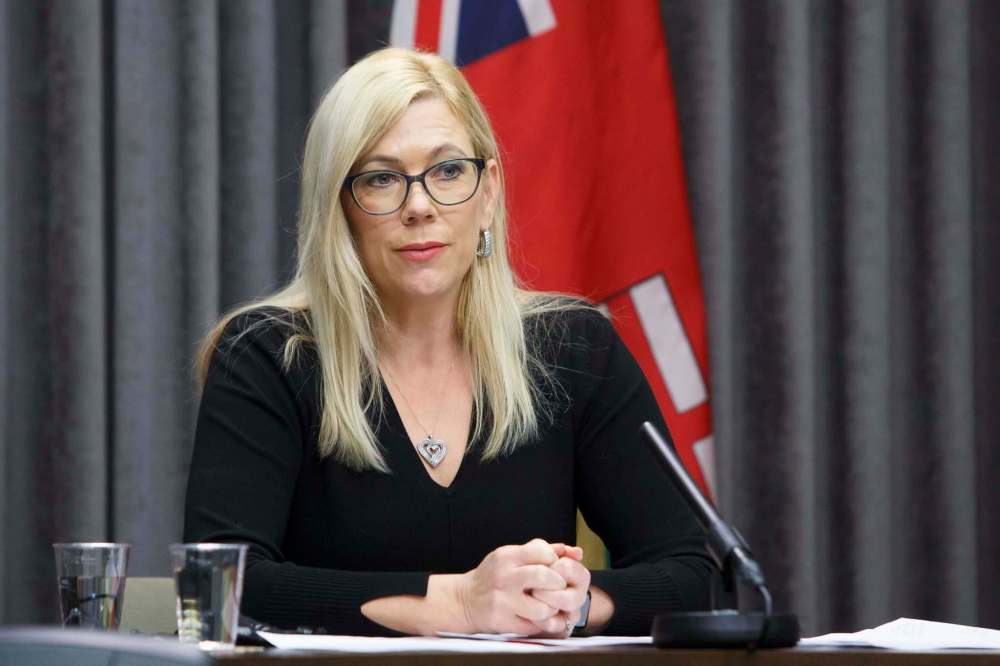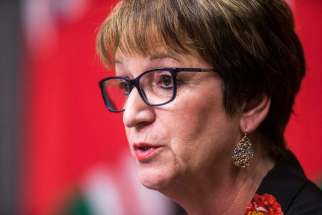Manitoba should move on child-care opportunity
Read this article for free:
or
Already have an account? Log in here »
To continue reading, please subscribe:
Monthly Digital Subscription
$0 for the first 4 weeks*
- Enjoy unlimited reading on winnipegfreepress.com
- Read the E-Edition, our digital replica newspaper
- Access News Break, our award-winning app
- Play interactive puzzles
*No charge for 4 weeks then price increases to the regular rate of $19.00 plus GST every four weeks. Offer available to new and qualified returning subscribers only. Cancel any time.
Monthly Digital Subscription
$4.75/week*
- Enjoy unlimited reading on winnipegfreepress.com
- Read the E-Edition, our digital replica newspaper
- Access News Break, our award-winning app
- Play interactive puzzles
*Billed as $19 plus GST every four weeks. Cancel any time.
To continue reading, please subscribe:
Add Free Press access to your Brandon Sun subscription for only an additional
$1 for the first 4 weeks*
*Your next subscription payment will increase by $1.00 and you will be charged $16.99 plus GST for four weeks. After four weeks, your payment will increase to $23.99 plus GST every four weeks.
Read unlimited articles for free today:
or
Already have an account? Log in here »
Hey there, time traveller!
This article was published 14/07/2021 (1609 days ago), so information in it may no longer be current.
A critical aspect of Manitoba’s economic recovery from the pandemic will be robust participation by the workforce. Child-care fees as low as $10 a day would help more Manitobans get back to work.
Historic funding deals with the federal government were signed by two provinces, Nova Scotia on Tuesday and British Columbia last Thursday, that will eventually reduce child-care costs to an average of $10 per day for children under six years old in those provinces.
Manitoba parents of young children can only wish child care was so affordable. In Winnipeg, fees in for-profit pre-school centres are $933 per month, non-profit infant fees are $651, and non-profit pre-school fees are $451.
The Trudeau Liberals’ deals with B.C. and Nova Scotia are the initial forays of a bid to build a national daycare system, which Ottawa is funding with a federal pool of $27.2 billion in new funding announced in April’s federal budget. Ottawa’s offer is open to all provinces, an opportunity Manitoba would be wise to investigate.

The timing of the Liberals’ eagerness to partner with provinces is strategic, coming at a time of abundant speculation that a federal vote will soon be called. The child-care deals can reasonably be seen as pre-election campaigning.
Boosting the re-election bid of the Liberals would be a tough pill to swallow for the Progressive Conservative government of Manitoba, as well as for Conservative provincial governments in Alberta, Saskatchewan and Ontario.
In fact, before the pandemic hit, the provincial Conservative leaders, united in a stand against the Liberals’ carbon-tax plan, were touted as “Justin Trudeau’s worst nightmare” and the “new opposition” to the federal Liberals. Some even saw Manitoba Premier Brian Pallister emerging as a possible leader of the new alliance of Conservative premiers.
That was then. This is now, when Manitobans would benefit considerably if the Pallister government can overcome its allergy to partnering with the federal Liberals and get in line for the child-care deal.
An example of how the deal would work was outlined in B.C.: the agreement requires that province to have created at least 12,500 $10-a-day spaces by the end of next year and create 30,000 new spaces in the next five years; the deal holds B.C. to levels of affordability, quality of care and training of early-childhood educators.
Manitoba should overlook past friction in its relationship with Ottawa and, putting a priority on what’s best for Manitoba families, try to negotiate a better deal with federal child-care funding, as B.C. and Nova Scotia have done.
The federal availability of new child-care funding comes as Manitoba is already in the process of restructuring its child-care system. A report by KPMG, commissioned by Manitoba and released in April, recommended an extensive overhaul of the funding system, cutting the operating grants for licensed child-care centres and moving toward a parent-based funding model involving grants and incentives paid directly to families. More provincial funding would reduce the fees of lower-income families, while higher-income families would pay more.
Manitoba Families Minister Rochelle Squires said she will consider the KPMG report’s transformative recommendations, but said she will also talk to parents and consult with child-care providers. She hasn’t yet said she will also talk to Ottawa, but she should.
Manitoba should overlook past friction in its relationship with Ottawa and, putting a priority on what’s best for Manitoba families, try to negotiate a better deal with federal child-care funding, as B.C. and Nova Scotia have done.
With the economy on the verge of opening up, Manitoba’s recovery will depend on vigorous participation in the workforce by all family members who want to work outside the home. Affordable child care can help it happen.







